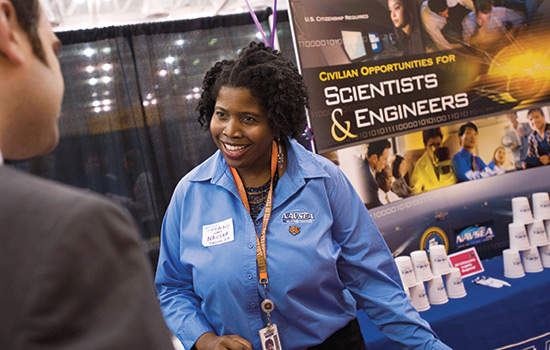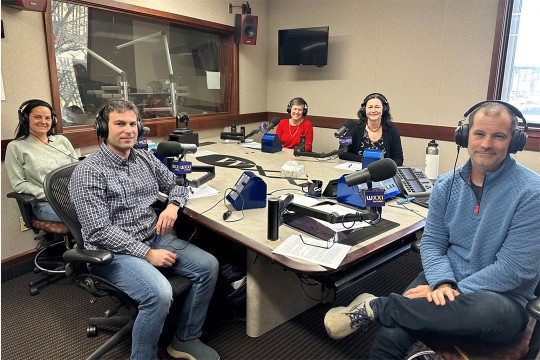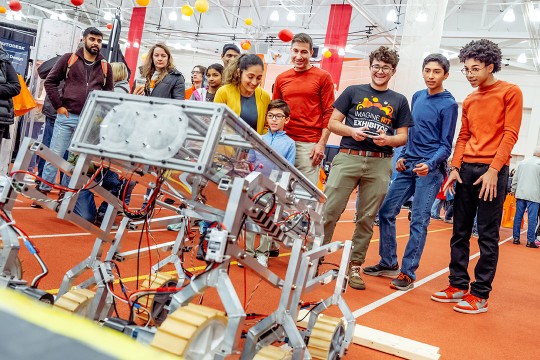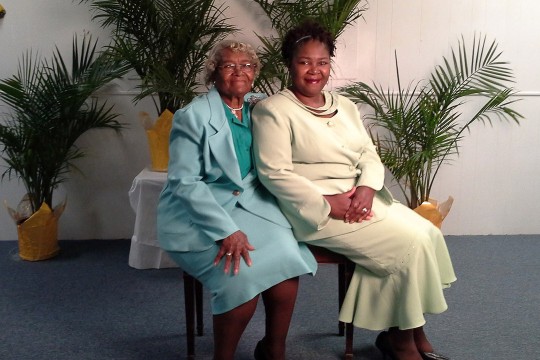Alumna helps keep sailors, Marines safe
A. Sue Weisler
Tiffany Owens ’98 (microelectronic engineering) thought she would be working in semiconductors but is now a safety engineer at the Naval Surface Warfare Center in Virginia.
If U.S. Marines are injured during combat, an unmanned jeep will soon be able to evacuate them to safety.
Or if they need equipment delivered, a robotic mule could carry 400 pounds of gear to them.
The systems are being tested at the Naval Surface Warfare Center in Dahlgren, Va., where researchers develop surface and undersea weapons systems for the Naval Sea Systems Command (NAVSEA).
Tiffany Owens ’98 (microelectronic engineering) makes sure these systems are safe before being sent to the field. She attained her job as a system safety engineer, she says, in part because of the confidence she developed through the co-op experience at RIT.
“I developed independence from getting to do things on my own,” she says.
The unmanned jeep is called Ground Unmanned Support Surrogate, or GUSS, and it can move up to 1,800 pounds of supplies. Owens identifies, analyzes and prevents safety hazards from occurring within a system by assessing it for hazards in its operational environment and defining mitigation strategies for implementation.
The robotic mule is called LS3 and is a larger version of the Big Dog robot now being used in the field. LS3 is designed to walk, climb and carry heavy loads. Deployment dates for GUSS and LS3 have not been released.
Owens thought she would be working in semiconductors her entire career. Her first co-op was in 1995 for Atmel Corp. in Colorado Springs, Colo., followed by a stint at Ingram Micro, a computer electronics distributor in Buffalo, N.Y. After another co-op at National Semiconductor in Portland, Maine, she graduated and went to work for White Oak Semiconductor in Richmond, Va. The company, later known as Infineon Technologies and then Qimonda, went bankrupt in 2009.
“I was back in the workforce looking for a new position and I went to a NAVSEA career fair,” she says. “I initially thought with my background in microelectronics, nothing would apply to what I do. But I went anyway and found a good fit for me with a position as a safety engineer.”
Owens says it’s a great feeling to know that she is contributing to the safety of Marines and sailors serving around the world.
“My engineering skills are used to the benefit of the organization in helping to deliver new technologies, and it’s personally gratifying knowing the difference I’m making in helping keep our servicemen and servicewomen safe.”















